‘The Antinaid’ – Gray Holland
The Antinaid
As the dark and sweeping water of the Nile
Bade the vessel sway, the heavy-hearted Hadrian,
With sorrow in his eyes, cried out in anguish,
To know that his lover, for himself, had died.
The young and beautiful Bithynian youth,
‘The love of Hadrian’s heart’, Antinous
Had been drowned in the sea-deep river,
As the Emperor’s procession sailed on.
Hadrian’s agony was felt across the empire,
None could escape it, nor run from his woman-like grief.
The godlike Hadrian awoke from a sleep as deep
As the fishermen’s seas, which swim with plentiful fish,
Of many breeds and pigments and sizes,
As a messenger, young and lean, entered the darkened room.
‘My Lord,’ he cried, ‘Antinous has been drowned!’
Weeping could be heard across the vessel,
Distress and pain such as only happen when a wife loses her husband,
Suddenly, inexplicably to a disease from the gods,
Such was the Alexandrian agony of divine Hadrian.
Anchoring his heart into his body, like a ship in a storm to the shore,
Hadrian drew his leaden feet across the floor,
Dragging his suffering with him, as a stone tied to his neck.
The Imperial posture drained away as he collapsed into a chair,
Tears that had thus been held back with shock,
Ran from his eyes, usually bright now as wine dark as the sea.
He wept, hunched over, unrelentingly while the Sun moved in the heavens.
When at last, the great man’s eyes were dry of tears,
He leant back in his chair of finely carved wood and woven cloth,
And stared with dullen eyes at the image of Alexander and Hephaestion.
An intricately woven piece of many colours, reds and golds and blues,
Detailing the last moments of Hephaestion’s short life.
Alexander’s eyes wide and fierce, while Hephaestion met his gaze,
His face pale and eyes glassy, even in fabric.
But Alexander looked alive, and he felt the pain of the moment,
With all the agony and torment of Achilles upon the loss of Patroclus.
Alexander, that Macedonian King of a wide-reaching Empire,
Cradled the body of Hephaestion in his arms with delicacy and desperation,
His eyes flashed fury as he cursed cruel Fate for the loss of his lover and friend.
Intense, burning heartache consumed his chest,
As he fought back tears that threatened to choke him.
Laying Hephaestion down, gently as a mother lays her infant son down to rest,
Alexander stood from where he had been seated,
Slowly as if in a dream, he walked out of the room.
He held his head high, looking past those who dared to meet his gaze.
His strong legs made it to a secluded room and there he collapsed onto the floor,
Weeping, wailing and beating the floor with his hands until they were blue,
The pain of the loss, like a burning dagger of ice, made the son of Philip sick.
As the light outside the room changed, Alexander’s heart, broken and cracked,
Grew cold with anger, and wide red eyed from tears,
He pulled himself to his unstable feet.
Leaning heavily on the table next to him,
He glared his own reflection down in a small mirror.
Sore red eyes contrasted with yellow curls creating not a King but a monster,
And the mirror hit the wall with a shattering crash,
As Alexander swung his arm, destroying the glass,
Scattering the remnants at his toes.
His lip curling in disgust he backed out of the room,
‘Wine.’ Growled Alexander at a servant, young and lean, who scuttled off quickly,
Seeing the King’s wide-eyed ferocity and fearing for his life.
The King scraped his eyes to dry his tears,
Drawing blood from his cheek in his vexation.
A deep and heavy sigh escaped his lips,
Like the winds sent by Poseidon,
To destroy long-suffering Odysseus as he left Ogygia,
The island home of the delightful nymph, Calypso.
The servant returned, eyes cast down to the ground,
In one outstretched hand, he passed Alexander the wine,
Moving quickly away as soon as it was grasped by the heartbroken leader.
Alexander clutched the wine, staggering back towards his dead lover,
He drank until his emotions ran numb and cold and hard,
Like an unmoving mountain, powerful and destructive,
Such as would terrify a mere mortal farmer,
But which gods would make a home of.
Alexander, with blood running cold, eyes wide and wild,
Returned to Hephaestion, blood cold and eyes dull,
Like a mere statue of what had been.
He drank the wine in one gulp, then he had more, and more and more,
Until he could not stand, and so he lay,
Distraught as the sky thundered and the winds howled,
Next to his beloved Hephaestion.
Tears rolled down from his wide eyes,
Soaking his yellow hair and dripping onto Hephaestion’s shoulder,
Like the last raindrops of a storm that has devastated a city,
Ending hope for the citizens and ruining lives.
Here it was that Hadrian saw Alexander,
And as he gazed as the Conqueror in his time of despair,
Hadrian stood silently, sighed heavily,
And as Emperor of Rome and her Empire,
Called on the gods to bless his Antinous.
He slowly left the room full of sorrow, of pain, of heartache,
And with decisive consideration, he approached his men,
Who had gathered in the wake of the news,
Sombrely he moved past them, leaving them, for now,
To their own thoughts and he to his.
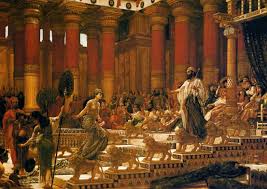
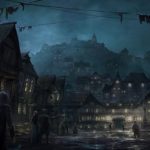
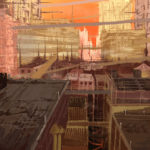
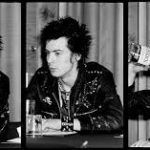
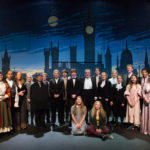










3 comments